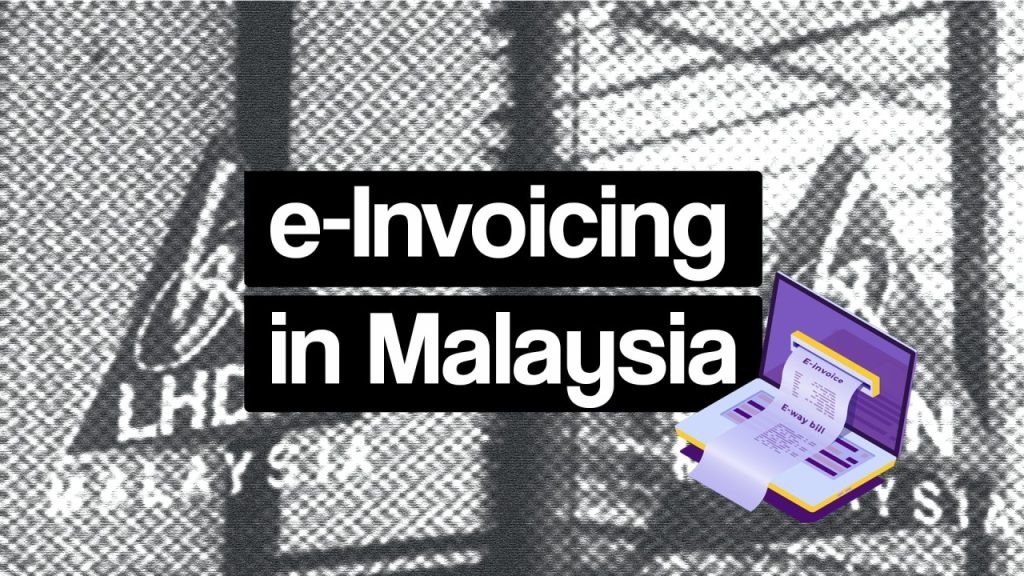Why e-Invoicing in Malaysia is Crucial for Businesses and Who Must Comply?

The digital era has brought about significant changes in how businesses operate. One such advancement is the introduction of e-Invoicing—a system that allows businesses to send and receive invoices electronically. In Malaysia, this shift towards e-Invoicing has gained momentum, driven by the government’s focus on enhancing tax compliance, transparency, and operational efficiency.
But why is e-Invoicing so important in Malaysia? And who is legally required to adopt it? In this article, we’ll explore these key questions and provide insights from the Malaysian government and various experts on the subject.
Why e-Invoicing is Important in Malaysia
- Improved Efficiency and Accuracy
e-Invoicing eliminates manual data entry and paper-based processes, reducing the risk of human error. For businesses, this translates to faster processing, fewer invoice disputes, and reduced costs. With electronic records, data is automatically stored in a more secure and organized manner, ensuring that all transactions are accurately recorded.
2. Enhanced Tax Compliance and Transparency
In 2023, the Inland Revenue Board of Malaysia (LHDN) introduced initiatives to implement e-Invoicing as part of their effort to increase transparency and reduce tax evasion. By having digital records of all transactions, businesses can ensure that their tax filings are accurate and compliant with government regulations.
According to LHDN’s e-Invoicing guide, e-Invoicing helps with tracking Value Added Tax (VAT) and ensuring that businesses do not under-report their earnings. This digital approach helps authorities verify tax submissions efficiently and minimizes loopholes that could lead to tax fraud.
3. Streamlined Auditing Processes
Another advantage of e-Invoicing is that it simplifies the auditing process. Electronic records provide a clear audit trail that can be easily accessed and reviewed by businesses and tax authorities. The LHDN has indicated that with e-Invoicing, audits will become faster, as all the necessary documentation is already organized and stored digitally.
4. Environmental Benefits
Switching to e-Invoicing also brings about environmental benefits by reducing the reliance on paper. Malaysia is increasingly adopting green technology and digital solutions in various sectors. e-Invoicing supports this shift by minimizing waste and promoting a more sustainable business environment.
Who Must Use e-Invoicing in Malaysia?
The transition to e-Invoicing is not just a choice but a mandatory requirement for certain businesses in Malaysia. According to the Royal Malaysian Customs Department (RMCD) and LHDN, e-Invoicing is compulsory for businesses that fall under the Sales and Service Tax (SST) system. As part of the government’s tax digitalization initiative, the following groups are required to use e-Invoicing:
- Businesses Registered under SST
Any company that is registered for Sales and Service Tax (SST) is required to implement e-Invoicing to ensure that all transactions are accurately reported to the tax authorities. The government has made this a requirement to ensure better compliance with tax laws and to minimize under-reporting.
2. Large Corporations
Companies with significant transactions, especially multinational corporations (MNCs) and large local enterprises, are required to adopt e-Invoicing as part of their tax compliance obligations. This ensures transparency in financial reporting and allows the government to monitor transactions in real-time.
3. Government Contractors
Any businesses that provide goods or services to the Malaysian government must also adopt e-Invoicing to ensure timely and accurate billing. Government contracts involve a large volume of transactions, and e-Invoicing helps streamline the entire payment process.
What Does the Future Hold for e-Invoicing in Malaysia?
As Malaysia continues to move towards a more digital economy, e-Invoicing will play a key role in the business landscape. The government has indicated that e-Invoicing will eventually be rolled out to all sectors, with plans to expand its implementation to small and medium enterprises (SMEs) in the near future.
The government’s long-term vision is to create a standardized e-Invoicing system that covers all industries and businesses, making Malaysia’s business environment more transparent, efficient, and globally competitive.
Conclusion
The shift towards e-Invoicing is more than just a trend; it’s an essential move for businesses in Malaysia. By adopting e-Invoicing, companies can improve their operational efficiency, comply with tax regulations, and contribute to a more sustainable environment.
For businesses registered under SST or involved in government contracts, e-Invoicing is no longer optional. It is a crucial tool for ensuring compliance, reducing risks, and preparing for a more digitalized future.
As e-Invoicing continues to grow in importance, now is the time for businesses in Malaysia to embrace this technology and unlock its benefits. The future of business transactions is digital, and e-Invoicing is leading the way.
References:
- Inland Revenue Board of Malaysia (LHDN), e-Invoicing Guidelines
- Royal Malaysian Customs Department (RMCD), Sales and Service Tax (SST) Compliance and e-Invoicing Requirements
- Article from The Edge Malaysia, “Digitalization of Taxation: The Role of e-Invoicing in Malaysia’s Tax System,” 2023.
- Malaysia’s Ministry of Finance, Budget 2023, outlining the roadmap for e-Invoicing implementation.




















